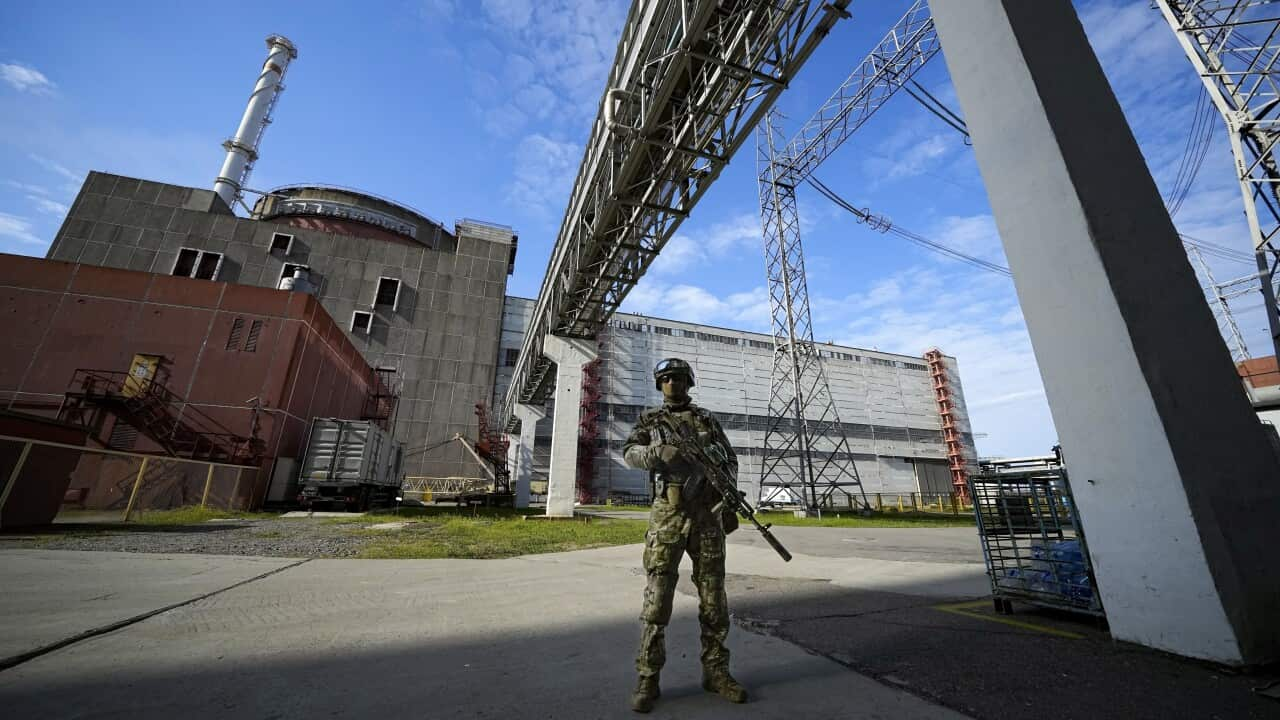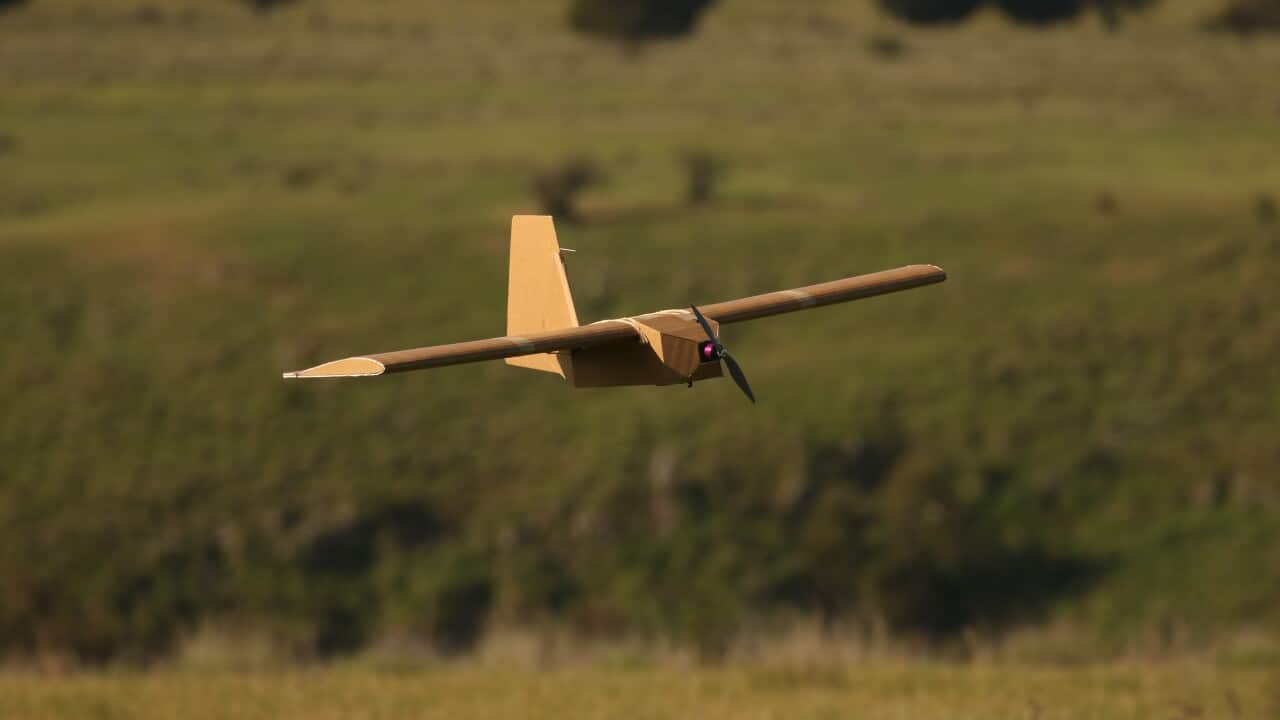Key Points
- Fighting has increased near Europe's largest nuclear power plant.
- The United Nations atomic watchdog has warned of a potential threat to nuclear safety.
- There has been no damage to the plant.
The United Nations atomic watchdog has warned of a potential threat to nuclear safety from a spike in fighting near Europe's largest nuclear power plant in Ukraine, whose forces are continuing to press their counteroffensive.
The International Atomic Energy Agency said its experts deployed at the Russia-occupied Zaporizhzhia Nuclear Power Plant reported hearing numerous explosions over the past week, in a possible indication of increased military activity in the region.
There was no damage to the plant.
"I remain deeply concerned about the possible dangers facing the plant at this time of heightened military tension in the region," IAEA director general Rafael Grossi warned in a statement.
He noted that the IAEA team was informed that staff at the nuclear power plant had been reduced temporarily to minimum levels due to concerns of more military activity in the area.
"Whatever happens in a conflict zone, wherever it may be, everybody would stand to lose from a nuclear accident, and I urge that all necessary precautions must be taken to avoid it happening," Grossi said.
The IAEA has repeatedly expressed concern that the fighting could cause a potential radiation leak from the facility, which is one of the world's 10 biggest nuclear power stations.
The plant's six reactors have been shut down for months but it still needs power and qualified staff to operate crucial cooling systems and other safety features.
As Ukrainian forces pressed to expand their gains after recently capturing the village of Robotyne in the Zaporizhzhia region, the United Kingdom Defence Ministry noted in its latest report that Russia has brought in reinforcements to stymie the Ukrainian advances.
"It is highly likely that Russia has redeployed forces from other areas of the frontline to replace degraded units around Robotyne," it said.
"These redeployments are likely limiting Russia's ability to carry out offensive operations of its own along other areas of the front line."
The US-based Institute for the Study of War noted that the Russian military has made notable changes to its command and control structure to "protect command infrastructure and improve information sharing".
Russian forces have continued their barrage across Ukraine.
The regional authorities in the northeastern region of Sumy that borders Russia said the latest Russian shelling left four people wounded, one of whom later died in a hospital.
Early on Sunday Russia launched an air attack on Kyiv with blasts ringing out across the Ukrainian capital and its region for almost two hours and drone debris falling on several of the city's central districts, officials said.
The scale of the attack was not immediately known. Reuters witnesses heard at least five blasts across Kyiv, and Ukrainian media footage showed a number of cars damaged.
Kyiv Mayor Vitali Klitschko said that one person was injured in the historic Podil neighbourhood and a fire broke out near one of the city's parks.
There was no immediate comment from Russia about the attacks.
Meanwhile the Kremlin reaffirmed that Russia will not extend a landmark deal allowing Ukraine to export grain safely through the Black Sea until its demands regarding its own agricultural exports are met.
Russia refused to extend the deal in July, complaining that a parallel agreement promising to remove obstacles to Russian exports of food and fertiliser had not been honoured.
It said restrictions on shipping and insurance hampered its agricultural trade, although it has shipped record amounts of wheat since last year.
Ukraine and its allies have dismissed the Kremlin's demands as a ploy to advance its own interests.











